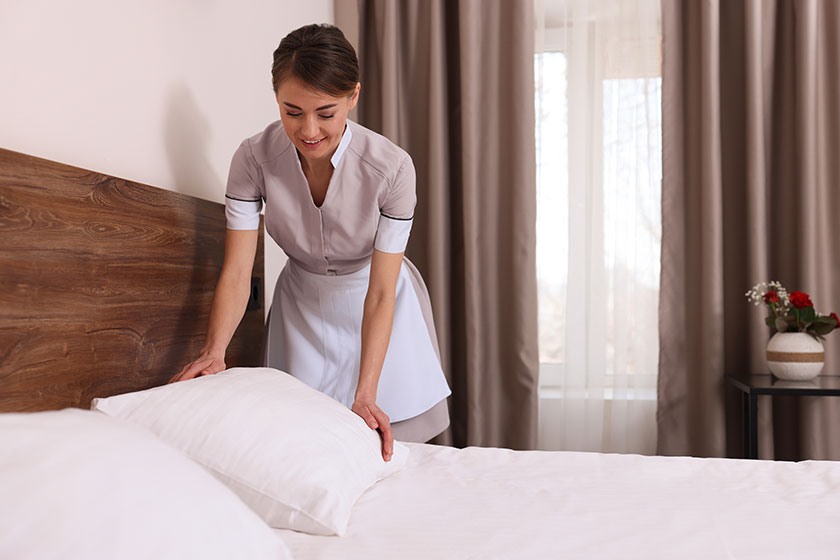Ensuring a clean and organized environment is crucial in memory care communities, where cleanliness directly impacts the well-being and health of residents. A spotless setting not only reduces the risks of infections but also creates a safe, comforting, and navigable space for individuals with memory issues. The importance of meticulous housekeeping goes beyond basic cleanliness, contributing significantly to the quality of life and dignity of those in care.
Within our continuing care community, the focus on exceptional housekeeping standards reflects our commitment to providing a nurturing and secure environment for our residents. Understanding the unique needs of individuals with memory conditions, our community places a high priority on maintaining cleanliness, orderliness, and familiar surroundings to support the well-being and comfort of everyone in our care.
Ensuring a Safe Environment for Residents with Memory Challenges
One of the primary objectives of housekeeping in memory care communities is to create and maintain a safe environment for residents. This involves regular cleaning to eliminate hazards that could lead to falls or infections, which are particularly detrimental to individuals with memory impairments. Team members are trained to recognize and mitigate risks, ensuring walkways are clear, surfaces are sanitized, and the living area is free from clutter.
Ensuring safety extends to the use of non-toxic cleaning products and implementing protocols that prevent the spread of germs. Especially pertinent in environments housing individuals with vulnerable health, such practices are critical. Through vigilant cleaning and maintenance, memory care communities can offer a secure haven that promotes peace of mind for both residents and their families.
Tailoring Cleaning Practices to Support Sensory Needs of Residents
Recognizing the unique sensory needs of individuals with memory impairments is essential in the context of housekeeping within memory care communities. Adjustments in cleaning practices often include the use of unscented or mildly scented products to avoid overwhelming residents who may have heightened sensitivities to strong odors. Lighting too is considered, with an emphasis on maintaining bright, evenly distributed light to help residents navigate their surroundings comfortably.
Auditory considerations are also made to minimize disruptive noises during cleaning. The overall goal is to create a serene environment that supports, rather than disturbs, the sensory experience of residents. By thoughtfully adjusting housekeeping practices, communities can significantly contribute to the well-being and comfort of those under their care.
Facilitating a Comfortable Living Space for Enhanced Cognitive Well-being
The role of housekeeping in facilitating a comfortable living space is intrinsic to enhancing the cognitive well-being of memory care residents. A clean, well-organized environment not only reduces stress but also supports cognitive functions by removing unnecessary stimuli that can confuse or agitate individuals with memory challenges. Regular cleaning and decluttering help maintain an orderly space that fosters a calm and predictable environment.
Dedicated Support in Our Memory Care Community
Proactive and thoughtful housekeeping efforts in memory care communities are essential to fostering a positive, healthy living space. Our memory care community excels in this area, leveraging specialized cleaning practices and safety measures tailored to meet the unique requirements of our residents, instilling confidence in their families about the care and attention their loved ones receive.







